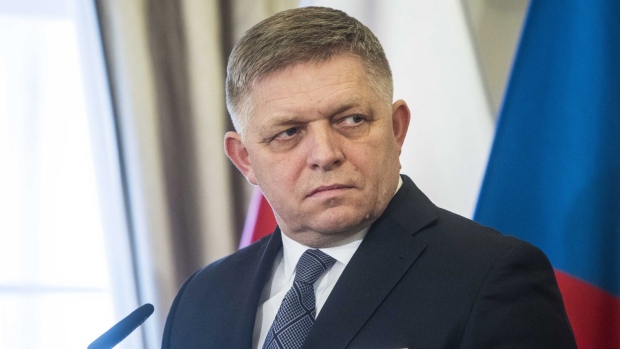Slovakian Prime Minister Robert Fico has decisively voiced his stance against Ukraine’s potential NATO membership, cautioning that it could spark a global conflict akin to World War III. His remarks arrived timely, just before a crucial discussion on Ukraine by European Union leaders in Brussels. The upcoming summit, scheduled for the 17th and 18th of April, will see various pressing issues tabled, with Ukraine’s geopolitical predicament high on the agenda.
During a press conference in Bratislava, Fico expressed a categorical refusal to support Ukraine’s bid to join NATO. He warned that ratification of such a membership by the Slovakian parliament was off the table. Fico underscored the importance of a neutral Ukraine, suggesting that Slovakia’s security could be compromised otherwise. However, he differentiated his stance on EU membership, indicating openness to Ukraine joining the European Union.
The issue of Ukraine’s NATO membership remains contentious. While the EU has greenlit the commencement of membership negotiations with Ukraine, the notion of integrating the war-stricken nation into NATO presents a thornier issue. Russia’s vehement opposition is well-documented, with the Kremlin viewing the expansion as a direct security threat.
Amidst this geopolitical chess game, NATO members appear cautious, likely delaying Ukraine’s accession until the dust settles post-conflict. Nevertheless, recent moves within NATO signal a strategic alignment, with plans to enhance the coordination of weapon deliveries to Ukraine. This development was pointed out by Hungarian Foreign Minister Péter Szijjártó, who remarked that such actions would inch the alliance closer to the fray than ever before. As the situation unfolds, the balance between diplomatic caution and strategic necessity continues to challenge European unity and resolve.
As the chess pieces of European geopolitics shuffle, the conservative Hungarian government and Slovak Prime Minister Robert Fico’s freshly minted left-wing sovereigntist cabinet are zagging while others zig. Sticking out in a crowd can be fashionable—unless you’re at a geopolitical gala. Both governments have thumbed their noses at the common EU and NATO route of arming Ukraine, instead calling for chit-chats to wrap up the ongoing conflict.
A December poll shows that 60% of Slovakians back their government’s hands-off-the-weapons approach, preferring diplomacy over deliveries. Fico’s Wednesday announcement reiterated that any arms aid should stay strictly bilateral—basically, “let’s keep this between us.”
Fico is playing the long game in his geopolitical predictions, betting the farm that Russia won’t return Crimea to Ukraine and won’t vacate eastern Ukraine after their 2014 guest appearance. His view? Europe might need to brace for a scenario where Russia’s military hand is on top. And NATO? Fico thinks their involvement would be like flipping the table in a high-stakes game—cue potential global warfare.
Meanwhile, Ukraine isn’t just sitting around waiting for the storm to pass. After their summer counteroffensive fizzled without much territory gain, the stalemate persists. With expert whispers suggesting Russia might clinch a tactical edge soon, Ukraine is scrambling to beef up its ranks with new mobilization laws.
As alarm bells ring louder across Europe, French President Emmanuel Macron has even floated the idea of sending ground troops—a bold move that could shift the ground beneath everyone’s feet. Whether these moves will lead to peace or just stir the pot further is the million-dollar (or euro) question.








